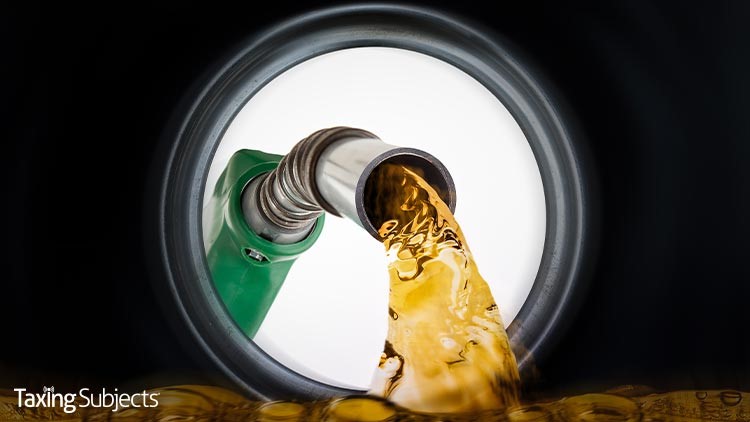Penalty for Highway Use of Dyed Fuel Waived in Some States

If you live in the Southeast, long lines and questionable containers are a sad reality at many local gas stations. The temporary Colonial Pipeline disruption caused a rush on fuel this week, leading many in the region to hoard gasoline.
Luckily, our post-apocalyptic future will have to wait.
In addition to the pipeline resuming operations, the IRS today announced that—from May 7 to May 21—they will provide relief for the dyed diesel fuel penalty. The relief applies if the fuel “is sold for use or used on the highway” and someone (whether the seller or vehicle operator) pays the motor fuel excise tax for diesel (24.4 cents per gallon).
The IRS explains that “ordinarily, dyed diesel fuel is not taxed, because it is sold for uses exempt from excise tax, such as to farmers for farming purposes, for home heating use, and to local governments.” And the penalty for non-approved use is the greater of $10 per gallon or $1,000 plus the excise fuel tax.
Further, the agency notes that it “will not impose penalties for failure to make semimonthly deposits of this tax,” pointing taxpayers to Publication 510, Excise Taxes, for more information.
Which states get the dyed diesel fuel penalty relief?
The IRS says that, currently, twelve states and the District of Columbia will benefit from the retroactive dyed diesel fuel penalty relief, including:
- Alabama
- Delaware
- Georgia
- Florida
- Louisiana
- Maryland
- Mississippi
- North Carolina
- Pennsylvania
- South Carolina
- Tennessee
- Virginia
Finally, the IRS says it “is closely monitoring the situation and will provide additional relief as needed.”
Source: IR-2021-108



